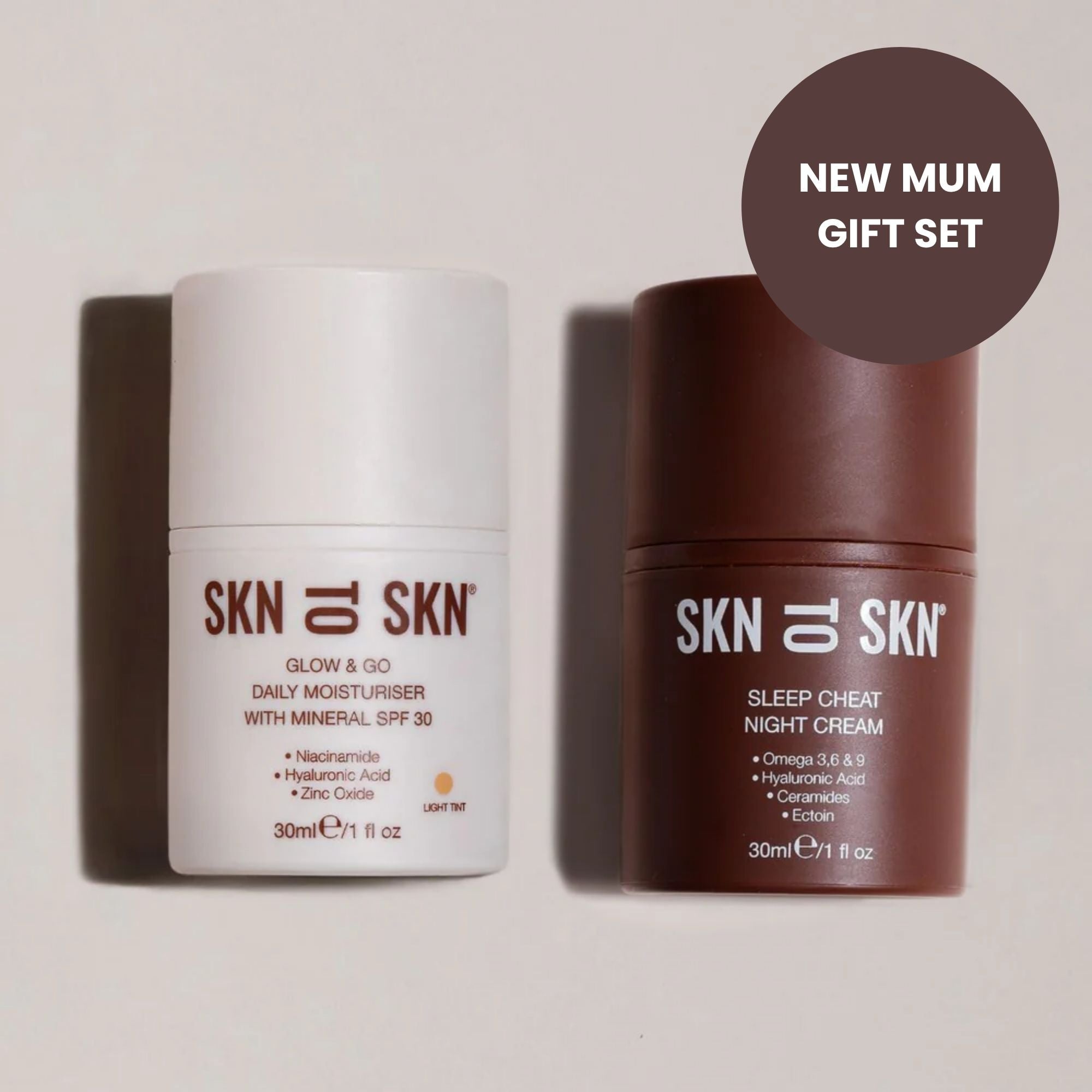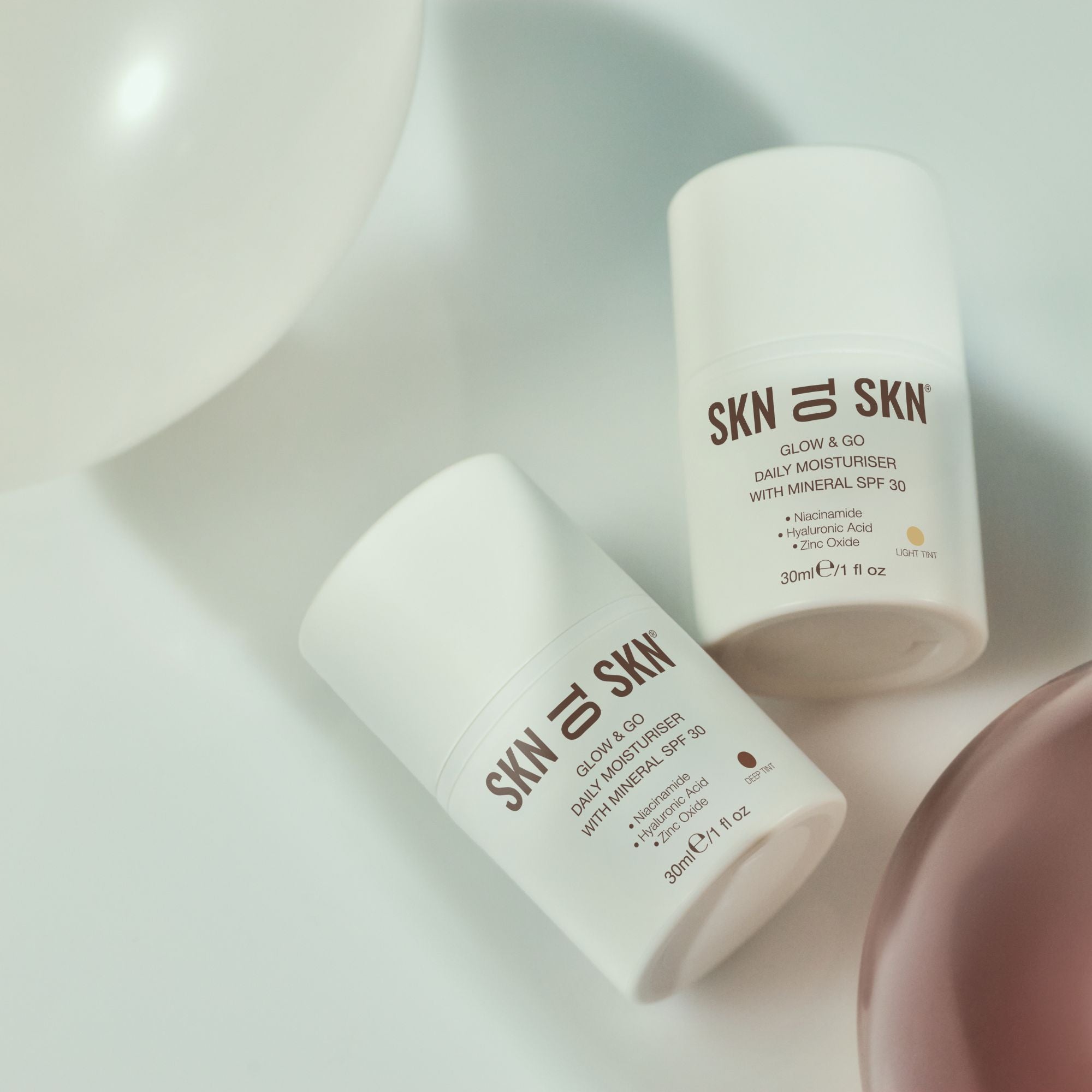Pregnancy Skincare: Ingredients to Avoid and Safe Alternatives
Pregnancy is a transformative time for your whole body, not least your skin. Hormonal changes can lead to a variety of skin concerns, including breakouts, dryness, sensitivity, or pigmentation. While skincare can help manage these issues, it’s important to know that not all ingredients are safe during pregnancy. Some may pose potential risks to your developing baby. To help you navigate this, here are the skincare ingredients to avoid during pregnancy and why, along with safer alternatives.
Which Products Are Not Safe to Use on the Skin When Pregnant?
Retinoids (Retinol, Retin-A, Tretinoin)
Why to Avoid:
Retinoids, a form of vitamin A, are widely used for their anti-aging and acne-fighting properties. However, high doses of vitamin A during pregnancy have been linked to birth defects and developmental issues in unborn babies. While topical retinoids result in lower systemic absorption, they are still best avoided.
Safe Alternatives:
Look for pregnancy-safe options like bakuchiol, a plant-based alternative with retinol-like effects. Algactiv Uplift, an algae-derived ingredient from Iceland, is also an excellent substitute for supporting skin renewal and smoothing fine lines. This is clinically proven to reduce the signs of ageing, improve skin texture and offer deep and long-lasting hydration.
Salicylic Acid (in High Concentrations)
Why to Avoid:
This beta-hydroxy acid (BHA) is commonly found in acne treatments and exfoliants. While low doses (under 2%) in products are considered safe, higher concentrations could be absorbed into the bloodstream and may pose potential risks such as skin irritation, birth defects and pregnancy complications.
Safe Alternatives:
Opt for pregnancy-safe exfoliants such as azelaic acid, or alpha-hydroxy acids like lactic acid and glycolic acid in low concentrations, to promote gentle exfoliation and improve skin texture.
Hydroquinone
Why to Avoid:
Used to lighten dark spots and hyperpigmentation, hydroquinone has a high absorption rate, meaning a significant amount can enter the bloodstream. Although there’s limited data on its safety during pregnancy, it’s best to avoid it as a precaution.
Safe Alternatives:
Opt for brightening ingredients like vitamin C, niacinamide or licorice root extract, which can help manage pigmentation safely during pregnancy.
Benzoyl Peroxide
Why to Avoid:
While effective for treating acne, benzoyl peroxide can be harsh on sensitive pregnancy skin and may lead to irritation or dryness. However, it is not considered inherently dangerous in low concentrations.
Safe Alternatives:
Try azelaic acid, which is gentler, safe and effective at managing pregnancy-related acne.
Essential Oils (Certain Types)
Why to Avoid:
While natural, some essential oils, such as rosemary, sage, and clary sage, have been linked to uterine contractions and hormone disruption. They can also cause skin sensitivity during pregnancy.
Safe Alternatives:
Choose mild, pregnancy-safe oils such as chamomile, jojoba or coconut oil for hydration.
Chemical Sunscreens (Oxybenzone, Avobenzone)
Why to Avoid:
Chemical sunscreen ingredients penetrate the skin. Chemical sunscreens can potentially disrupt hormones. Some studies have also raised concerns about their effect on fetal development, particularly that of oxybenzone which is present in up to 70% of chemical SPF. Analysis of human exposure levels to oxybenzone from sunscreen use, under normal conditions, demonstrates that enough chemicals can cross into the mother’s blood making it available to the foetus at high enough levels that can indeed inhibit migration of neural crest cells during critical embryonic development.
Safe Alternatives:
Stick to mineral sunscreens containing zinc oxide and titanium dioxide, which provide effective sun protection without absorption.
Formaldehyde and Phthalates
Why to Avoid:
Found in some beauty and skincare products, these chemicals are known endocrine disruptors and have been linked to developmental and reproductive toxicity.
Safe Alternatives:
Look for "phthalate-free" and "formaldehyde-free" labels on your products and opt for natural, organic formulations.
High Concentrations of Fragrance
Why to Avoid:
Some synthetic fragrances can cause skin irritation and may contain phthalates or other chemicals that are best avoided during pregnancy.
Safe Alternatives:
Opt for fragrance-free or naturally scented products using essential oils deemed safe for pregnancy.
Should I Worry About Parabens?
Parabens are preservatives used in cosmetics, personal care products, and some pharmaceuticals to prevent microbial growth and extend shelf life. The evidence around parabens and their potential danger during pregnancy is limited and often controversial.
High doses of parabens in animal studies have shown some endocrine-disrupting effects, including reproductive toxicity and developmental issues, but the doses used in these studies are far higher than those encountered through cosmetic use in humans. Parabens are not conclusively proven to be dangerous during pregnancy at the levels used in cosmetics and regulatory bodies consider them safe in their approved concentrations. However, because parabens are absorbed through the skin and detectable in human tissues, some people prefer to avoid them during pregnancy to minimise exposure to potential endocrine disruptors. If you feel more comfortable avoiding them, choose products labelled “paraben-free” that use natural preservatives like vitamin E or plant-based antioxidants.
Navigating skincare during pregnancy can be overwhelming, but by being aware of which ingredients to avoid, you can make informed choices that prioritise both your health and your baby’s well-being. Always consult with your healthcare provider or dermatologist if you are concerned with your skincare routine.
Looking for pregnancy-safe skincare?SKN TO SKN offers a range of clinically proven products specifically formulated for every stage of motherhood - from trying to conceive to postpartum recovery.
Stay safe, stay glowing, and enjoy this beautiful journey to motherhood!
 Written by Professor Caitriona Ryan, Consultant Dermatologist
Written by Professor Caitriona Ryan, Consultant Dermatologist




